#popular fiction
Text
Is looking down on "trashy" novels like a colleen hoover book classist?
I see this comment a lot on tiktok, and I don't think so myself. There are ways to expand your taste and circle as someone with less education, who is not as well read, who is poor, someone who is using a second language or as someone who is young.
Sally Rooney's novels are similarly accessible in terms of price, availability, and they're written in plain english. They're also a "young adult" romance, but cover some more advanced themes like self discovery and provide more meaningful dialogue on relationships and mental health. You do not need to read the western literary canon/classics to be well read or refine your tastes (there are significant class divides and accessibility issues in relation to some of these texts).
There is poetry available free online that contains more advanced literary devices, meaningful content, and food for thought than the wattpad-esque smutty fiction of booktok.
Reading purely for entertainment is still reading. And there is always a place for books that are just entertainment but some texts in terms of complexity, meaningful content, and the art of the writing some texts are above others.
#dark academia#classic literature#booktok#bookblr#colleen hoover#fiction#popular fiction#academia#romantic academia#writing#book discourse#literature
115 notes
·
View notes
Text
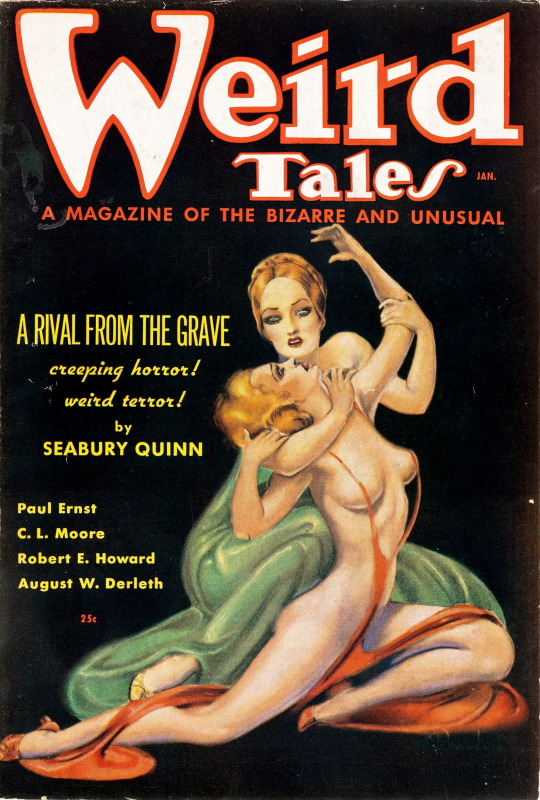
Weird Tales - January 1936 (Popular Fiction)
Classic cover by Margaret Brundage.
240 notes
·
View notes
Text
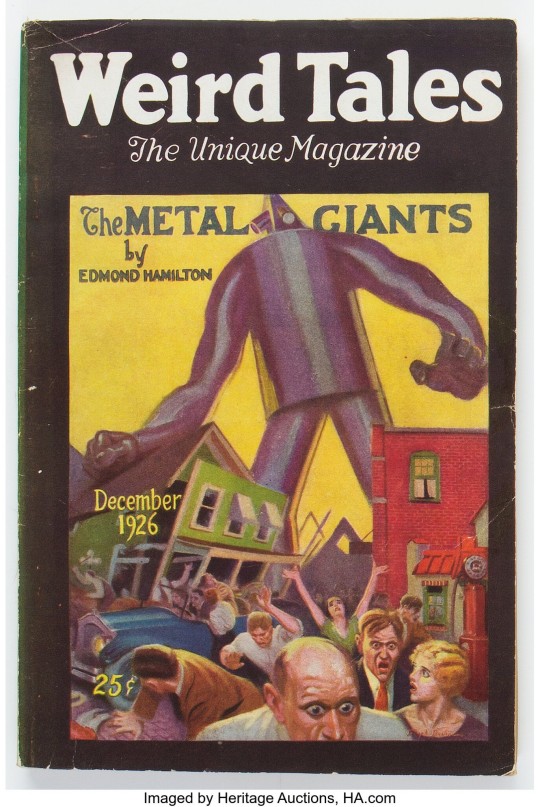
Vintage Pulp - Weird Tales (Dec1926)
Popular Fiction
#Pulp#Weird Tales#Robots#Science Fiction#Edmond Hamilton#Vintage#Art#Pulp Art#Pulp Illustration#Popular Fiction#Horror#1926#1920s#20s
41 notes
·
View notes
Text
The Brothers Hawthorne Book Review

The Brothers Hawthorne Book Review
You know, this book is pretty good! You might be taken aback by my surprise, but Jennifer Lynn Barnes’ series about the wealthy Hawthorne family has been fun at best and poorly characterized at worst.
The entire series has been carried on its entertaining elements: from the puzzles, riddles, and enjoyable (albeit predictable) twists and turns, only the plot and its labyrinthine lines has made these books enjoyable at all.
However, this book tones down the puzzles and focuses a little more on the characters, a recipe that works really well for me and what I’ve essentially been begging Barnes to do since the first title, The Inheritance Games.
This novel, called The Brothers Hawthorne, is a misnomer. It’s only about two of the brothers, Jameson and Grayson, leaving Nash and Xander as one-dimensional as they’ve always been. But hey, I’ll take it. Two brothers getting some characterization is better than the zilch we’ve been getting in previous books.
The book alternates POV’s between Jameson and Grayson, chronicling different plotlines of them trying to solve two very different mysteries.
Jameson’s story follows a rather thin chain of events where he gets entangled with a secret club called The Devil’s Mercy. The club boasts clients of only the rich and powerful variety, a club that Jameson can’t help but be tantalized by.
Jameson’s chapters simply follow him trying to get into The Devil’s Mercy, gain the attention of the man in charge, the Proprietor, and then solving a puzzle put forth by the Proprietor against other competitors for Vantage, a Scottish castle that belongs to Jameson’s estranged father.
The focus on Jameson, for lack of a better description, is boring and ridiculous. It’s in my opinion that Barnes couldn’t think of anything better for Jameson to do than finding more rich people who are also hungry and who also love to play games. I like the bits with Jameson and his father, but there weren’t enough scenes of them.
Unfortunately, only a handful are sporadically sprinkled throughout the book. If there had been more of Jameson coming to terms with his complicated relationship with his mysterious father, it would have been much more interesting than anything dealing with The Devil’s Mercy.
Grayson’s plotline, on the other hand, is handled with much more care and consideration. Even though the stakes are much lower (no Scottish castles or jumping onto bell towers) it's a hundred times more intriguing because I actually learned about Grayson’s emotions, his ties to his family, and his flaws. With Jameson, you kind of do, but it’s shallow and not nearly as deep as Grayson’s begrudging affection for his half-sisters.
Grayson’s story essentially revolves around keeping the true nature of Sheffield Grayson (his father) dead and buried and away from his sisters. He sabotages their efforts in learning what happened to Sheffiled Grayson with the mentality of protecting them. However, the more time he spends with them, the more his affection—and his guilt—grows.
While not the most novel of plotlines to exist, the emotions feel real at the very least. It’s the first time in the entire series where Grayson and Jameson feel like different, distinct people to me and not just pretty archetypes for Avery to agonize over.
Grayson’s family dynamics fascinated me much much more than any cockamamie game Jameson was playing in England because he’s constantly hungry due to an inferiority complex stemming from childhood.
The relationships Grayson builds with his sisters and their mother, in addition to coming to terms with the fact that he’s not perfect and certainly not okay, is a heavier reckoning than Jameson trusting Avery with a secret that’s not that deep and not that interesting.
Speaking of Avery, her bits were so painful that it hurt.
Every time Jameson or Grayson mention her I wanted to retch. Her and Jameson are just so perfect together. Perfect to the point that it’s unrealistic and fake. Every time Jameson solves a riddle, Avery is right there with him, equal in terms of logic and intelligence.
I get that Barnes wants to portray Avery as smart, but the idea that they’re completely and utterly synchronized every single step of the way feels so paltry and disingenuous that it makes me actively dislike any part of the book that contains both of them.
Jameson on his own is tolerable. Jameson “burning” for Avery and “breathing” for Avery is absolutely stupid. Thank goodness she was just a side character in this and didn’t have her own POV.
Other than the complaints about Avery, The Brothers Hawthorne is an enjoyable read. Could the characterization be more complex and sophisticated? Yes. Is the plot pretty foolish and duplicitous? Yes. Is it more enjoyable than the last few books of the same series? Also, yes.
Will I read the next installment? Unfortunately, yes.
While The Brothers Hawthorne is a step in the right direction, these books are still more candy cotton fun than true substance. You know what though? Sometimes that’s okay. Not every book you read has to have an intricate plotline with heavy elements and intense characters.
Sometimes books can just be fun.
Sometimes all you want is cotton candy.
Recommendation: The Brothers Hawthorne is probably my favorite book in the series since The Inheritance Games. If you’re still on the Jennifer Lynn Barnes’ bandwagon, don’t jump off now. Read The Brothers Hawthorne and enjoy the morsels of characterization that get tossed your way.
Score: 7/10
#the brothers hawthorne#the inheritance games#jennifer lynn barnes#ya book rec#yaromance#ya fiction#book blog#book review#book recommendations#book rec#popular fiction#books#popular books#top books#favorite books#book recs#7/10
21 notes
·
View notes
Link
#podcast#book club#literature#discussion#fiction#gothic#horror#romance#historical fiction#popular fiction
65 notes
·
View notes
Text
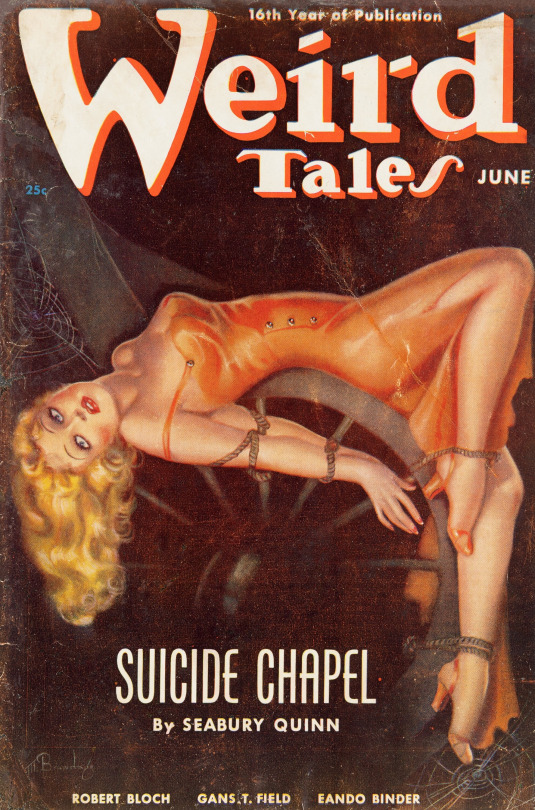
Weird Tales - June 1938 (Popular Fiction). Cover art by Margaret Brundage.
60 notes
·
View notes
Text
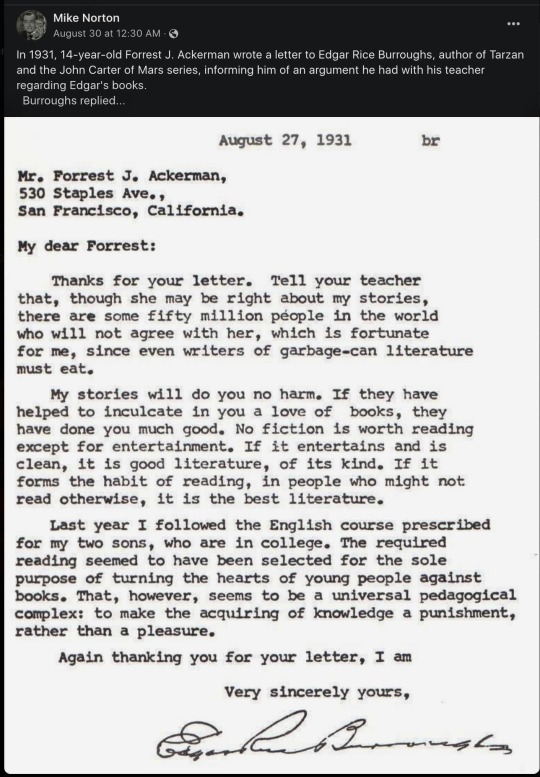
#booklover#book blog#reading room#correspondence#books & libraries#edgar rice burroughs#forrest j ackerman#reading#literature#popular fiction
25 notes
·
View notes
Text
explain to me what would possess me to write a 14k word fanfic (in three days 😐) to submit for my final project in a popular fiction class. explain.
ohhh right it was the ghost of that quirked up white boy john laurens. sickening. somebody put me out of my misery.
no cause is it even ethical to make my professor read 40 pages for an elective class
#amrev#alexander hamilton#john laurens#historical lams#college#popular fiction#the midnight library#< the book we read that i did my project on#professor said to be creative and write our own story based on the book if we'd like.#so.#44 pages and a 14407 word count#gross gross gross#if i was a professor i'll fail the student for the AUDACITY#like WYD makijg me read sad story abt dead guy#this class is on POPULAR FICTION#re: popfic not fanfic not historicalfic#end my life pls!#ALSO guess what i'm not posting it on ao3 either cause (ok its a great fic ngl its actually the most fire thing ive written) BUT i dont#...have an account so i won't be making one just to um forcefeed the world my homework(?)
40 notes
·
View notes
Text
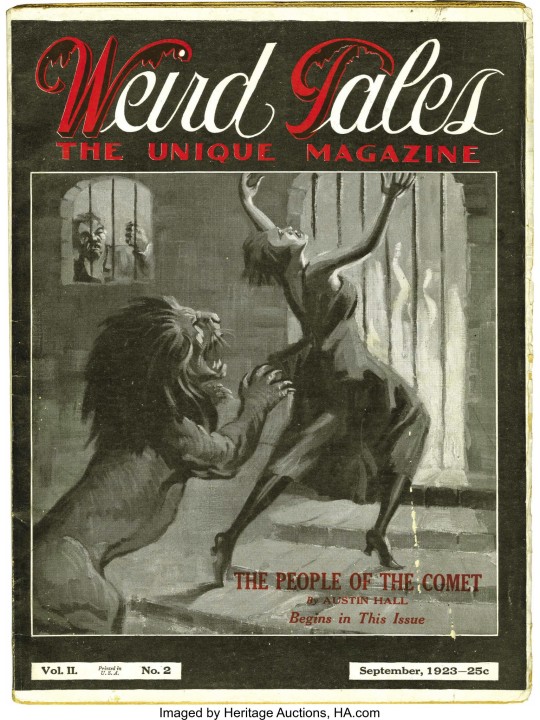

Vintage Pulp - Weird Tales (Sept1923) (Popular Fiction)
#Pulp#Weird Tales#Horror#Fantasy#Magazines#Vintage#Art#Pulp Art#Pulp Illustration#Popular Fiction#Advertising#Lions#1923#1920s#20s
21 notes
·
View notes
Photo

Dust jacket of Young Man of Manhattan by Katharine Brush, 325 pp., Farrar and Rinehart, 1930. Plot: Toby McLean and Anne Vaughn, two newspaper columnists, marry with high hopes and dizzying speed, but the real problems start once the vows are exchanged. Careers clash and Toby finds himself the object of the affection of a bored socialite called Puff Randolph. The book was made into a movie the same year starring Ginger Rogers and Claudette Colbert.
Photo: Cary Collection
#New York#NYC#vintage New York#1930s#Katharine Brush#books#vintage fiction#Young Man of Manhattan#popular fiction#books into movies
128 notes
·
View notes
Photo
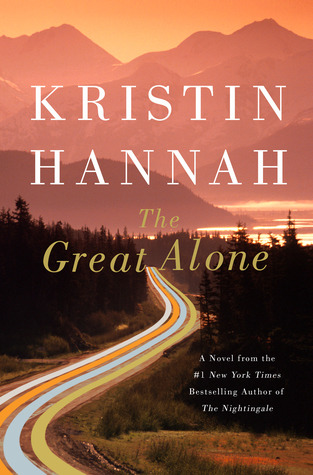
currently reading
#books#reading#the great alone#alaska#kristin hannah#book cover#book club#novel#popular fiction#1970s
3 notes
·
View notes
Note
ok but as per last anon what ARE your hot takes of the aesthetic judgment variety
I don't have that many, at least as far as anything "classic" goes. The test of time is real test, so if something's lasted I try to understand why, and I usually succeed. Still, I have my tastes, as anyone does, so here are some "strong opinions":
—While I buy Frye's argument in The Anatomy of Criticism that satire is literature's first line of defense against philosophical, religious, and political encroachment on its autonomy, I still think it's a low art form always tempting the writer toward arrogant cheap shots. Accordingly, I don't much care for Voltaire, for Twain, for Vonnegut; I don't like a lot of dystopian fiction for the same reason and dis-esteem Brave New World and The Handmaid's Tale in particular as the worst offenders. The exceptions prove the rule: Swift is a genius because you can tell he includes himself in his satire; Never Let Me Go is the greatest dystopian novel because it's really about our own everyday lives here and now, wherever here and now happen to be.
—Now I will violate my own rule in the last post about avoiding stageist and stadial cultural historiography (sometimes I contradict myself just to see if anyone is paying attention): novels written before people figured out how to write novels without just blathering on in episodic prose aren't very pleasurable to read as a whole, despite the brilliance of their parts, and this includes figures I otherwise allow to be writers of genius, whether Cervantes or Defoe or Fielding or Richardson or Scott.
—I'm missing whatever gene allows people to take pleasure in the whole nonsense wing of the avant-garde, your Gertrude Steins, your John Ashberys, many of your Dada and Surrealist and L=A=N=G=U=A=G=E poets, the Anne Carson books I don't enjoy (as opposed to the ones I do), and the like. Poetry should be beautiful and symbolic, novels beautiful and dramatic. "Alas a doubt in case of more go to say what it is cress. What is it. Mean. Potato. Loaves." Get out of here with this shit, lady. Literature is the eye with which the universe beholds itself and knows itself divine, not whatever that is supposed to be.
—In homage to the master of Strong Opinions himself, modern literature's veritable chessmaster, I will say that Bloom's judgment on Updike is every bit as true of Nabokov: "a minor writer with a major style."
—This kind of game always revolves around negative contrarian judgments, but on the positive side, and in defiance of what I'm sure some see as my elitism: popular, middlebrow, and/or genre novels that have stood the aforementioned test of time are almost always actually good, whether we're talking about Uncle Tom's Cabin or Dracula or The Grapes of Wrath or Dune or The Godfather or The World According to Garp or The Secret History. (One exception for me: Tolkien. The three movies—perhaps the three longest movies ever made—and a couple of pages of that put me off for life.) The gay aesthete wing of the new right over on Twitter has been making an apologia for Ayn Rand recently, to much controversy across the political spectrum, but I can believe it. I never read Rand for two reasons: one, I heard she was bad, and two, given my own libertarian streak, I was worried I would decide she wasn't.
I'll avoid comment on my contemporaries. I have plenty of hot takes there, limited only by my tendency not to finish reading what I don't like and my belief that you can't really judge a book you haven't finished, but I can't be trusted to evaluate direct rivals can I?
3 notes
·
View notes
Text

Weird Tales - October 1933 (Popular Fiction)
This classic bat-woman cover by Margaret Brundage makes this one of the most sought-after issues of Weird Tales, as well as a highly desired pulp in general.
the most tumblr-centric art ever
also that NRA symbol is for the National Recovery Administration, a Roosevelt program from 1933 that was VERY popular with workers.
77 notes
·
View notes
Text
my day was made when my popular fiction teacher came to class drinking tea from a mug that had "tears of my students" written on it. legendary behaviour, me thinks.
6 notes
·
View notes
Text
The Starless Sea Book Review
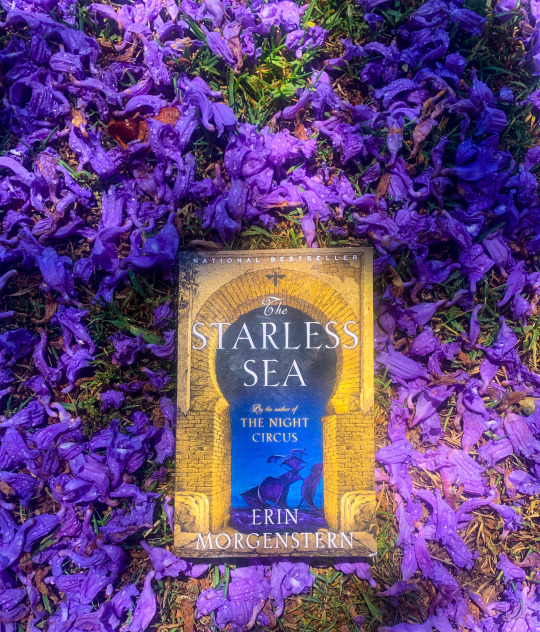
The Starless Sea Book Review by Erin Morgenstern
This book made me feel like I was drowning.
In honey.
If you don’t get that reference, don’t worry. Morgenstern will beat you over the head with it every single chapter until you can never see honey the same way again.
Now, I feel like I’m in an odd camp where I actually haven’t read Morgenstern’s famous masterpiece The Night Circus. I’ve always wanted to get around to reading it, but it always seemed to slip right past my to-be-read pile.
So when The Starless Sea came out, I thought yes! This is my chance to get in on a Morgenstern book early.
Too bad I didn’t like it.
The Starless Sea starts off really interesting. There’s a series of vignettes that hook the reader right away, including a pirate and a girl, an acolyte in training, a dollhouse village, and a fortune-teller’s son. The fortune teller’s son turns out to be the main protagonist of the novel—Zachary Ezra Rawlins.
Zachary Ezra Rawlins is a hermit-like young man in his mid-20’s studying game design. He ends up finding an old book at his university’s library in which his real life childhood memory is one of the chapters. The other chapters of this old novel? All chapters that we as readers have been consuming since the first page. Very meta, Morgenstern.
Understandably baffled, Zachary Ezra Rawlins sets on a quest to uncover the book’s secrets, leading him to the very real underground world of the Starless Sea, including its inhabitants, puzzles, and magic.
Throughout the journey, Zachary Ezra Rawlins meets other characters connected to the Starless Sea in some capacity and finally gets the answer to the question that has plagued him since childhood: what would have happened if he had opened that door?
I genuinely wish I could go more in depth about this book’s plot, but there’s only one main problem—this book doesn't have a plot. Go ahead and read that sentence again. I’ll state it once more for good measure: As an objective third-party outsider with absolutely no stakes in the matter, The Starless Sea contains no discernible plot to speak of.
I can say that the plot was a convoluted mess that didn’t make any sense. Zachary Ezra Rawlins (yes, it does get annoying repeating this again and again, yet Morgenstern opens every chapter with it) goes deep down underground past the Harbor into the Starless Sea for…reasons.
He encounters numerous puzzles and magic and lots of rooms that Morgenstern likes to describe in excruciating detail, mainly that they’re dripping in honey and occupied by cats. The other people he encounters don’t answer most of his questions, leaving the reader bewildered and frustrated.
One character in particular is a man that Zachary Ezra Rawlins falls in love with for seemingly no reason at all. They have about three stunted conversations, including one where the other man whispers menacingly in his ear in the dark about bees and owls and swords for ten minutes, and then Zachary Ezra Rawlins is risking life and limb in the abyss of the Starless Sea to rescue him.
Another character is trying to blow up the Starless Sea for inane reasons that don’t make sense, but essentially get boiled down to she’s trying to protect it.
The other characters include Zachary Ezra Rawlins’ college friend who gets way more page time than she needs to, the keeper of the Starless Sea that answers nobody’s questions, Mirabel who is apparently the embodiment of fate, and her parents, who have been trapped in time and space for…a long time?
None of these characters called to me. None of them were awful, but all of them outside of Zachary Ezra Rawlins were either too brief, underdeveloped, or abstract for me to connect with on any kind of emotional level.
I wanted to connect to Zachary Ezra Rawlins, but none of his actions held much depth, his thinking was too shallow, and his commitment to his love interest Dorian actively didn’t contain any kind of logic or understanding.
You might be wondering: if she didn’t like the nonsensical story or the characters, did she like anything?
Indeed, I did. The setting of The Starless Sea was really incredible. I’m always in awe of people’s creativity and imagination, both qualities Morgenstern seems to have in droves. The descriptions of the rooms, the Harbor, and the Starless Sea itself were all intricate, beautiful, and extremely symbolic.
I wish I could say that I liked Morgenstern’s writing, but it really grated on me. What started off as moving writing, well-crafted sentences, and intentional symbolism turned into a repetitive slog that drove me up the wall.
I like symbolism as much as the next person, especially subtle symbolism, but Morgenstern’s symbolism is the opposite of subtle.
Morgenstern’s symbolism wants to beat you over the head with a key. Or a bee. Or a sword. Or a crown. Or an owl. You get where I'm going with this. What could have been a really cool series of motifs turned into a pretentious drone that aggravated me more and more as I continued to read.
Overall, I was really disappointed with The Starless Sea. With a little more plot direction, tightening of the characters, and less symbolism, The Starless Sea could have been an alluring and fantastic read to rival the everlasting fame of The Night Circus.
As it stands, however, The Night Circus would only need to contain a recognizable plot to be better than The Starless Sea for me.
Recommendation: If you are a Morgenstern fangirl and will be reading The Starless Sea regardless of what I say, fantasize about the incredible setting of The Starless Sea and hope to forget about everything else. If you’re like me and haven’t delved into Morgenstern’s worlds just yet, start and end with The Night Circus.
Score: 4/10
#the starless sea#erin morgenstern#the night circus#book blog#book review#favorite books#top books#popular fiction#Popular Books#Book Recommendations#book recs#book rec#4/10
37 notes
·
View notes